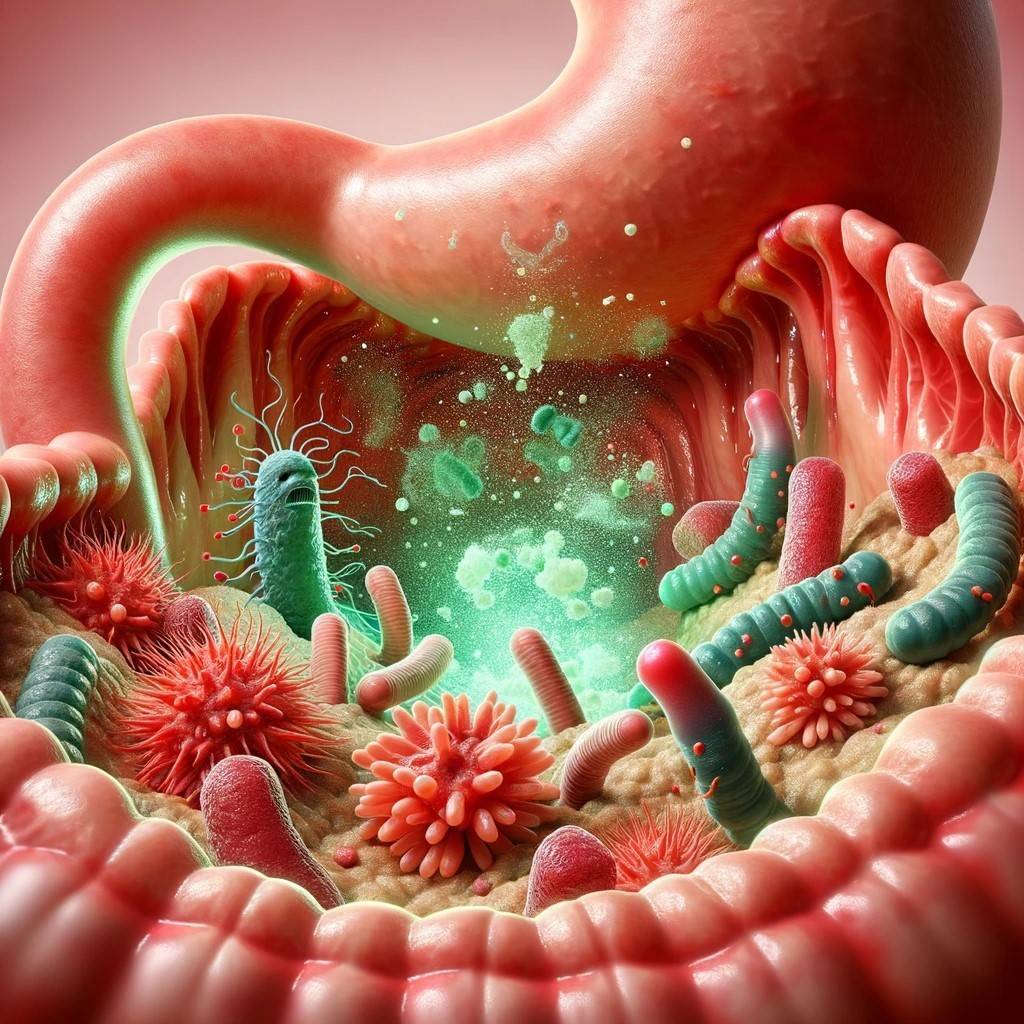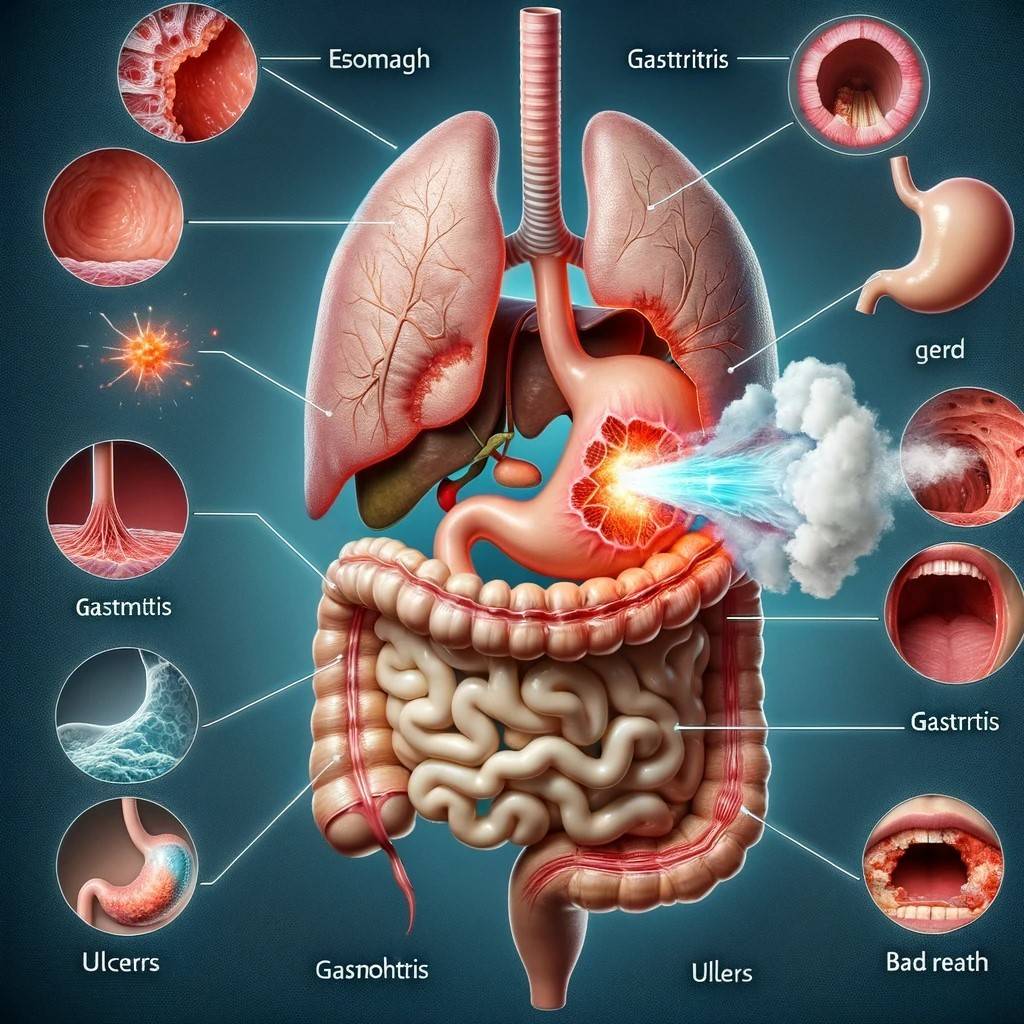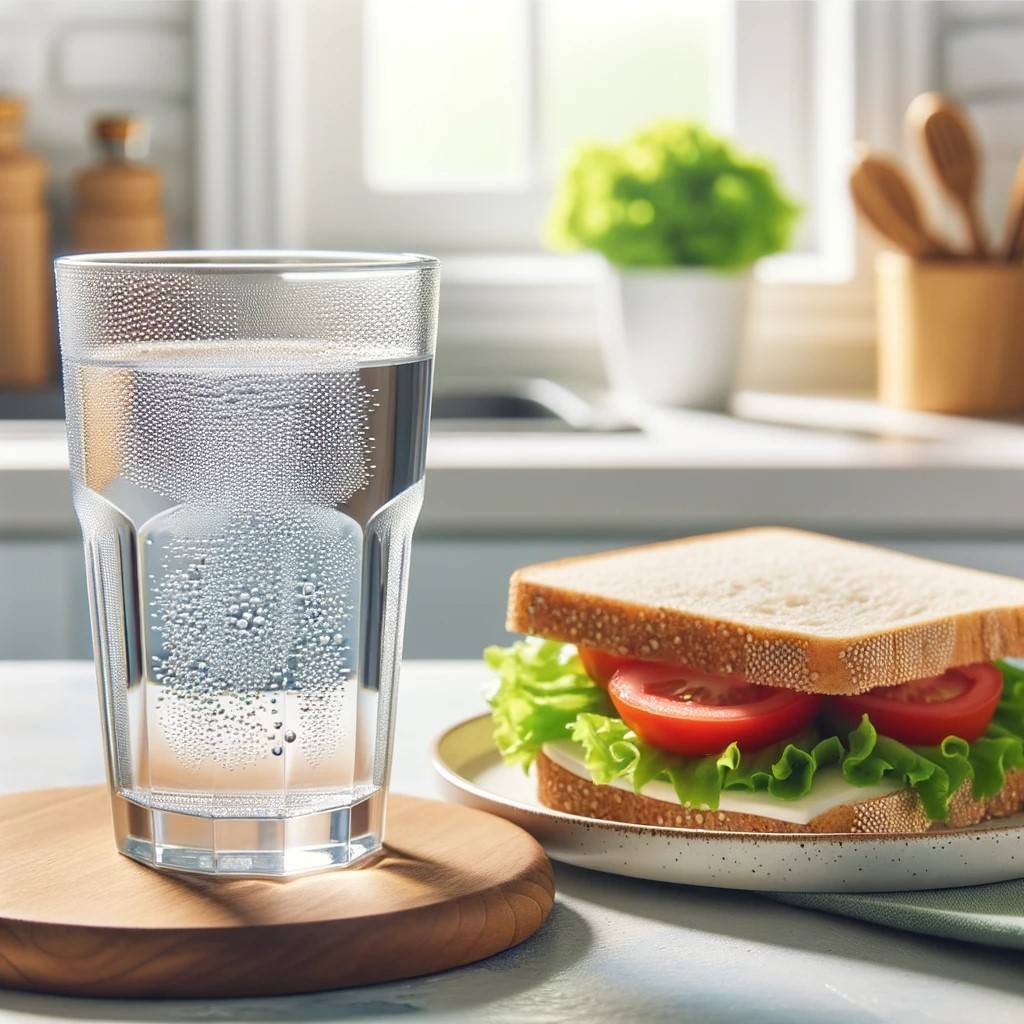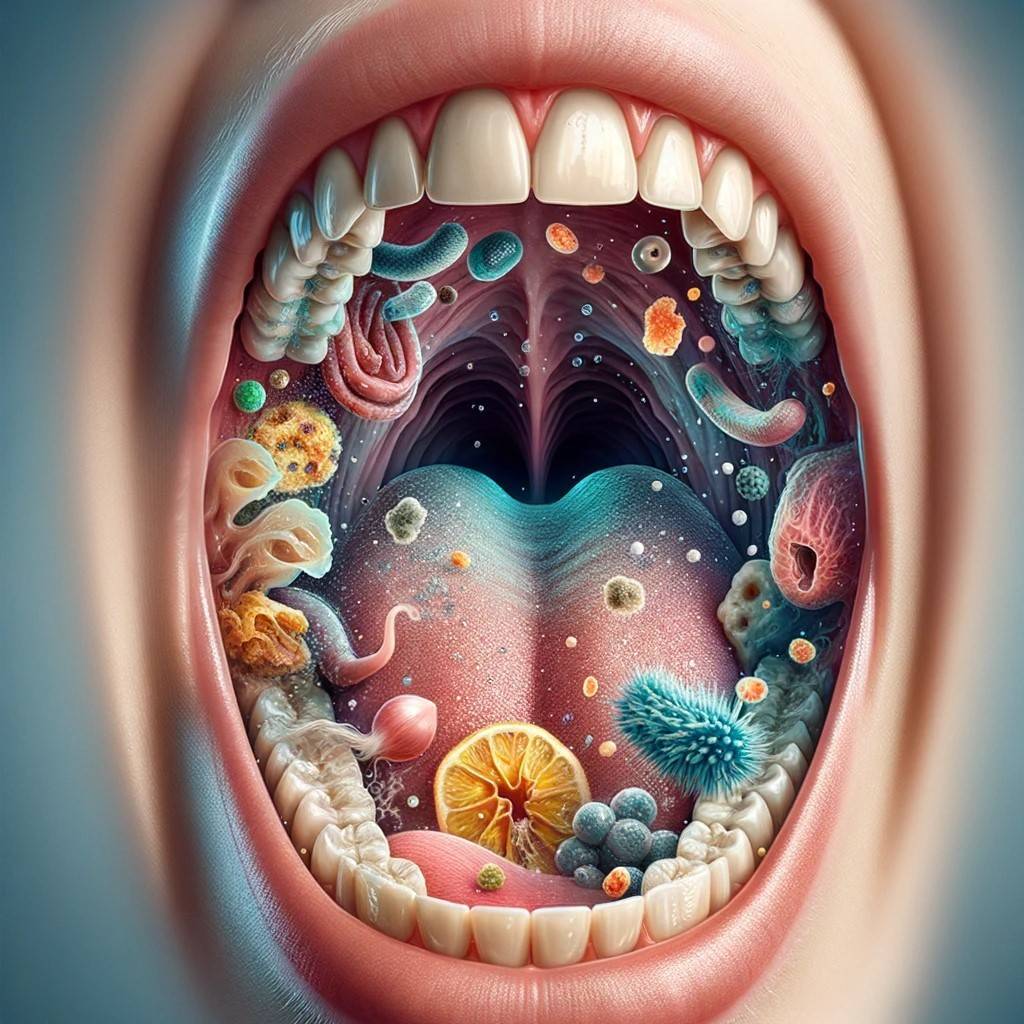What Causes Bad Breath from the Stomach? Unveiling the Secrets.
Explore the secrets of “What Causes Bad Breath from the Stomach” and uncover the mysteries behind this common issue. Find solutions to freshen your breath.
Introduction about What Causes Bad Breath from the Stomach
Bad breath, medically known as halitosis, can be an embarrassing and distressing issue for many. It’s often associated with poor dental hygiene, but did you know that your stomach can be the culprit too? Understanding the roots of this condition is key to tackling it effectively. This comprehensive exploration dives into the intricate relationship between your stomach and oral malodor, offering insights and solutions.
The Stomach and Halitosis: An Inside Look
Peering into the Abdominal Abyss

What Causes Bad Breath from the Stomach?
Our journey begins in the labyrinth of the gut. The stomach, a hollow organ involved in digestion, can sometimes become a breeding ground for bad breath due to various reasons:
- Digestive Disorders: Conditions such as gastroesophageal reflux disease (GERD) and peptic ulcers can lead to the release of foul-smelling gases.
- Helicobacter pylori: This bacterium, residing in the digestive tract, has been linked to stomach ulcers and may contribute to bad breath when it causes underlying issues.
- Dietary Choices: Foods with strong odors, like garlic and onions, can cause temporary bad breath. However, certain diets that lead to imbalance or indigestion can also be culprits.
List of Symptoms Indicating Stomach-Related Halitosis
Identifying bad breath originating from the stomach may involve noticing:
- A persistent foul odor despite oral hygiene
- Sour or bitter taste in the mouth, especially after meals
- Symptoms of digestive discomfort or irregularity
Digestive Disorders and Their Role in Bad Breath

Gastroesophageal Reflux Disease (GERD)
GERD occurs when stomach acid frequently flows back into the tube connecting your mouth and stomach (esophagus). This backwash (acid reflux) can irritate the lining of your esophagus and cause:
- Heartburn
- Acidic or sour taste
- Regurgitation of food or sour liquid
GERD is a common cause of chronic halitosis due to the presence of acid in the esophagus and the potential for it to reach the oral cavity.
Helicobacter pylori Infections
The presence of H. pylori is a significant factor in the development of peptic ulcers and can lead to bad breath through:
- Ulcer formation and associated bleeding
- Interaction with food particles and gastric juices
Eradication of H. pylori is crucial for treating ulcers and, in turn, may alleviate bad breath.
Diet and Bad Breath: What’s the Connection?
Impact of Food Choices
Certain foods are notorious for causing bad breath, and their digestion process can release smelly compounds that are carried to your lungs and breathed out.
Case Study: A study found that a diet high in animal proteins can foster an environment for sulfur-producing bacteria, which contribute to foul-smelling breath.
Intermittent Fasting and Ketosis
When the body enters a state of ketosis during fasting or a low-carb diet, it starts to burn fat for energy, producing ketones. One such ketone, acetone, is expelled through your breath and has a distinctive odor.
Diagnosis: When to See a Doctor
It’s advisable to consult with a healthcare provider if:
- Bad breath persists despite improved dental hygiene
- You experience heartburn, discomfort, or other digestive symptoms regularly
Treatment Options for What Causes Bad Breath from the Stomach

Medical Interventions
- Antibiotics: For pylori infections, a combination of antibiotics can be prescribed.
- Acid reducers: For GERD, medications like proton pump inhibitors can reduce stomach acid production.
Dietary Adjustments
- Probiotics: Incorporating these into your diet can improve gut health and potentially reduce bad breath.
- Balanced diet: A diet rich in fruits, vegetables, and whole grains can promote digestion and decrease odors.
Home Remedies and Lifestyle Changes

Effective Habits for Fresh Breath
- Hydration: Drinking plenty of water helps keep the mouth moist and washes away food particles and bacteria.
- Regular meals: Eating at regular intervals promotes saliva production and reduces the likelihood of ketosis-related bad breath.
Herbal Remedies
- Mint: Chewing on fresh mint leaves can mask bad breath temporarily.
- Green tea: Its antibacterial properties may help neutralize bad breath.
Prevention: Keeping Bad Breath at Bay
Maintaining good oral hygiene is paramount, but don’t forget:
- Regular dental check-ups
- A balanced diet
- Adequate water intake
Conclusion to What Causes Bad Breath from the Stomach
Understanding that the stomach can play a significant role in causing bad breath opens new avenues for treatment and prevention. By exploring the depths of this issue, we empower ourselves to take control of our oral health and overall well-being.
Remember, while the information provided here is detailed, it’s essential to consult with a healthcare professional for personalized advice and treatment.
FAQs about What Causes Bad Breath from the Stomach
At the end of the article, provide a section with frequently asked questions addressing common concerns and misconceptions related to stomach-induced bad breath.
What organ causes bad breath?
Your choppers aren’t the only culprits for bad breath; your belly plays a part too! Sometimes, it’s your stomach that’s kicking up a fuss and causing that not-so-pleasant breath.
What does stomach breath smell like?
When your stomach’s the troublemaker, your breath might have a foul, acidic kind of whiff, sort of like old food that’s been hanging around a bit too long.
Does drinking water help with bad breath?
Absolutely! Chugging water is like giving your mouth a good rinse. It washes away food bits and keeps your saliva flowing, which is ace for nixing bad breath.
What are the symptoms of bad breath?
It’s more than just a yucky taste in your mouth. Bad breath can feel like there’s a constant funky odor you just can’t shake. Sometimes others might notice it when they’re up close and personal during a chat.
What antibiotics treat bad breath?
Antibiotics can be real lifesavers for breath that’s gone rogue because of bacteria. For instance, docs might prescribe them if a bug called H. pylori is causing trouble in your stomach.
How do I stop bad breath from my stomach?
tackling bad breath that originates from your stomach involves a multifaceted approach:
- Balanced Diet: Kick off with eating regular, balanced meals. Opt for plenty of fruits, veggies, and whole grains. These foods are friends with your digestive system and can help keep things running smoothly.
- Hydration: Keep a water bottle handy and sip throughout the day. Water helps to wash away food particles and bacteria, the pesky little things that can cause bad odors.
- Probiotics: Say hello to yogurts and fermented foods. They’re packed with good bacteria that can help balance your gut flora, which in turn may help manage odors.
- Regular Dental Hygiene: Brush twice a day and don’t forget to floss. Good oral hygiene can help prevent bad breath from your mouth affecting your stomach.
- Medical Intervention: If an over-the-counter approach isn’t cutting it, a healthcare provider can check for conditions like GERD or H. pylori infections, which might require medications like proton pump inhibitors or antibiotics.
- Snack Smart: Crunchy, fibrous foods can boost saliva and help wash away bacteria. So, an apple a day might keep bad breath at bay.
- Avoid Trigger Foods: Onions, garlic, and spicy foods can linger and cause breath issues. If they’re the culprits, cutting back might be a good idea.
- Chewing Gum: Sugar-free gum can be a quick fix. It gets your saliva flowing, which is nature’s way of cleaning your mouth.
By combining these steps, you’ll be well on your way to fresher breath and a happier stomach.



